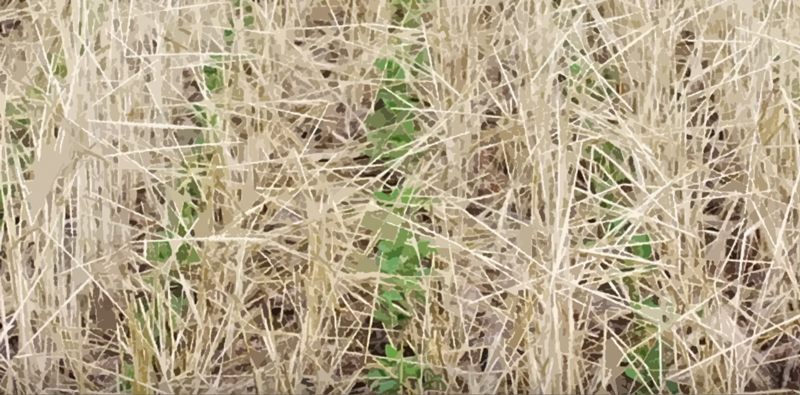There are some interesting possibilities hinted at in this presentation:
What I took away: lipids and carbohydrates feed the fungi, leading to long-term humic acid development in the soil. Fungi are your long-term soil builders, not bacteria. Bacteria return the soil to just its component minerals without adding in much, if any, long term humus. Adding nitrogen to fallen crop residues increases bacterial breakdown of the material, leading to a fast composting process which leaves next to nothing. Higher lipid (fat) content in plants provides more for fungi to eat and makes for healthier ongoing soil and crops.
The makers of the video sell a product called Rejuvenate, which feeds fungi:
The functions it performs, according to the website, are:
1. Assists in the decomposition of fall crop residues
2. Suppresses overwintering crop diseases
3. Improves soil structure
Since fungi feed on carbohydrates and apparently adding lipids makes humus stick around longer, my approach to composting everything is yet again backed up by SCIENCE(TM)!
Compost meat and fat and oil and sticks and logs and everything. Long-term soil fertility ensues.


6 comments
I’ve heard this before about lipids and fungus. It is the reason why fish emulsion (which has all the fat removed) is not as beneficial as fish hydrolysate (which retains the fat).
Very cool, Joe. I’m about to make a batch of fish fertilizer. I just smash guts and sugar and water in a bucket and let it ferment for months. That should keep the fats.
Isn’t that how they make rum? haha
I’ve had some that tastes like it.
I’ve always been told it’s not good to compost citrus peels because worms don’t like them and they grow mold. But according to this, mold is a good thing. Did I understand correctly?
You probably address that in “Compost Everything”, which I’ll read as soon as I’m done with “Grow or Die”.
Yes mold is a good thing. Mold makes beer and wine and rich humus
Comments are closed.